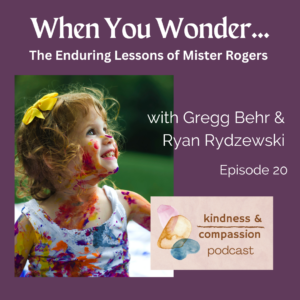
In this episode, Gordon has a conversation with Gregg Behr and Ryan Rydzewski about their book, “When You Wonder You’re Learning: Mr. Rogers Enduring Lessons for Raising Creative, curious, caring Kids”. They discuss unconventional wisdom of Fred Rogers and what he taught in his PBS program for children (and adults), “Mr. Rogers’ Neighborhood”. They discuss the importance of teaching children emotional intelligence and how to live into more kindness and compassion.
Meet Gregg Behr & Ryan Rydzewski
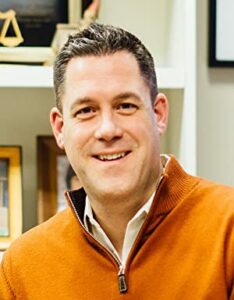
Gregg Behr, executive director of The Grable Foundation, is a father and children’s advocate whose work is inspired by his hero, Fred Rogers. For more than a decade, he has helped lead Remake Learning—a network of educators, scientists, artists, and makers he founded in 2007—to international renown. Formed in Rogers’ real-life neighborhood of Pittsburgh, Remake Learning has turned heads everywhere from Forbes to the World Economic Forum for its efforts to ignite children’s curiosity, encourage creativity, and foster justice and belonging in schools, libraries, museums, and more. A graduate of the University of Notre Dame and also Duke University, Gregg holds honorary degrees from Carlow University and Saint Vincent College. He’s an advisor to the Brookings Institution and the Fred Rogers Center, and has been cited by Barack Obama and the Disruptor Foundation as an innovator and thought leader. Visit his website: www.greggbehr.com
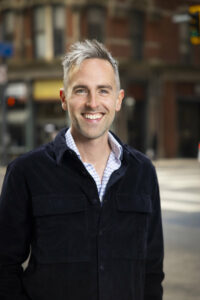
Ryan Rydzewski is award-winning author, reporter, and speechwriter whose science and education stories span everything from schools to space travel to Mister Rogers’ Neighborhood. A graduate of the University of Pittsburgh, he taught elementary school in south Louisiana before earning an MFA in nonfiction writing from Chatham University.
In addition to his work for nonprofits — reports, speeches, op-eds, and the like he writes feature stories and creative pieces that have appeared in Pittsburgh Magazine, Hippocampus, and elsewhere.
Ryan was born and grew up in Erie, Pennsylvania. For almost a decade, he has been living in Pittsburgh, where you can find him writing, running, or lounging in the yard with his wife, Jacqueline, and their (very) old-soul beagle, Walter. Visit his website at ryanrydzewski.com
WhenYouWonder.org
The Real Mr. Rogers
If you grew up watching “Mr. Rogers’ Neighborhood,” you may remember Fred Rogers as the kind, gentle man who sang songs and told stories about his beloved puppets. But what you may not know is that Mr. Rogers was also a learning scientist who had a deep understanding of how children learn and grow.
When You Wonder, You’re Learning
In their new book, “When You Wonder You’re Learning: Mr. Rogers Enduring Lessons for Raising Creative, curious, caring Kids,” authors Ryan Rydzewski and Greg Behr delve into the lessons that Mr. Rogers left behind and explore why they are still relevant today.
(Being transparent; the link to the book above is an affiliate link. This just means we receive a small commission with no extra cost to you if you use the link. Thanks for using the link!)
As educators and parents themselves, Ryan and Greg understand the importance of fostering a love of learning in children. In a world where there is so much emphasis on testing and standardized measures of success, it can be easy to lose sight of the fact that learning is a process of exploration and discovery. Mr. Rogers’ message of love and compassion is just as important today as it was when he first appeared on our television screens, and his blueprints for learning can help us raise children who are creative, curious, and caring.
Creating a Safe and Welcoming Space
Fred Rogers, the host of “Mr. Rogers’ Neighborhood,” was known for his slow, deliberate approach to teaching and learning, which he believed created an atmosphere conducive to learning and exploration. This included creating a safe, welcoming space where questions could be asked and answered and where children felt like they belonged. In their book, “When You Wonder Your Learning: Mr. Rogers Enduring Lessons for Raising Creative, curious, caring Kids,” authors Ryan Rydzewski and Greg Behr explore the importance of this approach to learning, particularly in an era where there is so much focus on testing and standardization. They also discuss the concept of deep listening and loving speech, which is essential for creating an atmosphere of acceptance and growth.
Conclusion
If you’re a fan of Mr. Rogers or are simply looking for ways to support your children’s learning and growth, this book is must-read. Ryan and Greg’s insights and insights from learning scientists around the world offer a fresh perspective on how to approach education and parenting in the 21st century. It’s a great place to start in teaching our kids the importance of kindness and compassion in an increasingly polarized world.
Gordon Brewer: Well, hello everyone and welcome again to the podcast and I'm really happy for you all to get to know today, Ryan Zeki and Greg Bayer, uh, who have a book that I think you really are gonna wanna learn about and that book. And their book is When You Wonder, you're learning. Mr. Rogers enduring lessons for raising creative and Curious and Caring Kid. So welcome Ryan and Greg.
Ryan Rydzewski: Thank you so much for having us. We're happy to be here.
Gordon Brewer: Yes. Um, so as I start with most everyone, tell folks a little bit about yourself and how you've landed where you've landed.
Ryan Rydzewski: Sure. So, uh, this is Ryan. Um, my name is Ryan Zeki. I am a, uh, science and education writer, and I'm also a former elementary school teacher. So how did I end up here working on a book with Greg? Uh, well, . I taught fourth and fifth grade down in Baton Rouge, Louisiana. And I eventually made my way back home to Pittsburgh, which is of course the real life home of, of Fred Rogers.
Uh, and that's where Greg and I started working, um, together on some pieces about the science of learning. So in the pr in the work that we're privileged to do for the Grayville Foundation, which Greg is the head of, um, a lot of our work has to do with figuring out what are we learning about learning itself.
and we talk to scientists, we talk to expert educators. We read academic articles from places right here in Pittsburgh, like Carnegie Mellon and the University of Pittsburgh, but also further afield from universities all over the country and the world. And what we realized over time in doing that was that when you talk to.
Learning scientists and when you talk to educators and you talk to parents, they're not talking about learning so scientifically, right? I think we expected lots of charts and graphs and numbers and and technical terminology, but instead they're asking questions like, how do we make sure kids feel safe?
How do we make sure kids feel that they belong to a community that cares about them? Uh, how do we make them feel? As Fred Rogers used to say that they are loved and capable of loving. And we like to say that, you know, in listening to these lectures and meeting these scientists and reading these papers, they started to sound to us like Scripps from Mr.
Rogers neighborhood. And that's really, uh, where this whole process, uh, began with that. Aha. .
Gordon Brewer: Mm-hmm. .
Greg Behr: Yeah. And hi everyone. I'm Greg Bear. I'm the co-author with Ryan of this book entitled When You Wonder, you're Learning. I'm a Western Pennsylvania kid, as is Ryan, which is maybe all that you really ultimately need to know about us
Um, because like Fred Rogers we're, um, products of these western Pennsylvania Hills. I've been working in the field of education for two decades now. And also like Ryan, I'm a. . And so we bring sensibilities to this book as educators, as parents, and as Ryan said, have a chance in this book to represent Fred Rogers.
Not just as that loving, caring individual that so many of us got to experience on the other side of our television set, but as a remarkable learning scientist who was decades ahead of his time and who left for us some blueprints for learning that matter more to us, maybe more than they did during Fred's time.
Uh, and certainly 20 years after his passing maybe mean more to us in this moment right now than ever before.
Gordon Brewer: Yes. Yes. It, it's, it's interesting because as I was putting this podcast together, when I started it previously this year, I remember as I was getting the copy together for the website, I was going back and reading, um, a little book that I've.
Called The Wisdom of Mr. Rogers. I think, uh, I don't know if you've run across that book. It's on my shelf back here somewhere. I can't remember the, the, um, who, who edited that, but it's just quotes from Fred Rogers. And so I, I, I, I pulled from that and then, Then the movie came out, I can't remember when the movie came out.
I guess it was year before last, something like
Greg Behr: that. Yeah. Now which movie? Because there's Morgan Neville's amazing documentary and then there's the biopic starring Tom
Gordon Brewer: Hanks. Yes. I was thinking about the, the one with Tom Hanks and Yeah. And so I was just enthralled by it and um, yeah, so. It's, it's interesting how it, it brings, brings you guys into my life and just thinking about all of this and just so I know there's a lot of different places we could start with this, but what have you guys learned so far and what was the inspiration behind the book?
A little more about that. Yeah, I, I.
Ryan Rydzewski: Are what we really have come to see Fred in almost a new light. So Greg mentioned, you know, we grew up here in Western Pennsylvania. We grew up watching the neighborhood on television. We have that emotional connection to Fred that almost anybody who ever watched him shares right.
and I think, you know, you mentioned the movies with, with Tom Hanks, we tend to think of Fred as this nice guy in a sweater. Mm-hmm. , which he absolutely was. But what we try to do with this book is figure out, well, how did Fred do what he did? How did Fred make so many people feel that way? So many people from so many different walks of life, from so many different generations for so many decades in a row.
Is there a method to what Fred. , and if so, what do those blueprints look like and how can we, you know, 20 years after Fred himself passed away? Apply those lessons and follow Fred's blueprints in our schools and at home and in museums and libraries and all the places where we, uh, and where our young people learn.
So we really have come to see Fred, um, as a scientist, because he really was a scientist. As Greg will tell you, he studied with some of the top minds of his generation, and he put those lessons to work in Mr. Rogers. .
Greg Behr: Right. Well, and that's the thing, Gordon, we've, we have the privilege now with adult eyes and adult minds to look back at what it is that Fred did because so many of us met him with our little kid eyes, right?
Mm-hmm. and developed that emotional attachment often si oftentimes sit sitting alongside siblings or parents or others and as adults to look back at what it is that Fred did is an incredible. There are many interesting parts about Fred's story before the neighborhood even hits the air. One of the most amazing parts is this, Fred was studying at the Pittsburgh Theological Seminary.
and it was during his time at the seminary that he decided he wanted to use that newfangled technology of television to minister to kids. Right. He saw what was attractive to kids and said, what if we made this good and constructive in a way that was helpful in their lives? Mm-hmm. , and it was his teachers at the seminary that said, well, Fred, if you're gonna do.
you better learn something about child development theory and practice, which ideally is something that any teacher, any youth worker, any librarian, anyone who's in the caring professions for kids hears at some point. Mm-hmm. , and this is where Fred ended up in a place called the Arsenal Family in Children's Center here in Pittsburgh.
It was a chance for him to sort of learn in an environment. And this environment, it turns out, was stack. with a 20th century Mount Rushmore of child development, psychologists, psychiatrists, and pediatricians. There was a remarkable happenstance of the people who happened to be here in Pittsburgh, the 1950s and sixties.
So there are folks like Benjamin Spock, the doctor whose book Baby and Child, child Care, one of the bestselling books of all time in American Publishing history. Probably everyone listening here either has a copy in their home. Their aunt or uncle or grandparents have a copy in their house. You can still walk into bookstores today and find that book on the shelves.
There are folks like Eric Erickson, pediatricians like Brazelton coming through, and most importantly as, uh, we've come to appreciate was the work of Margaret McFarland, who's a psychiatrist at the University of Pittsburgh, who became Fred's lifelong mentor and dear friend. So we mentioned this experience about being an arsenal because their Fred was among a world-class.
Of experts around what we were learning at the time about learning and about child development theory and practice, and he absorbed all of that. Fred was like a sponge, and you see he took what he absorbed in that setting. and he applied it to puppetry, to lyrics, to a wardrobe, to a physical set, to everything that he did.
It was deliberate and intentional and in so many ways, Fred was a scientist. And today, in, in the language of, of contemporary times, we would describe him as a learning scientist. A scientist who was studying how we learn. , but we didn't use that phrase 40 and 50 years ago. But that's exactly what Fred was and that's what today we can see as adults, looking back at the work that he did over the many decades mm-hmm.
that we saw his program on, that television set, and Gordon, he made it so easy, so seamless. Mm-hmm. that we didn't recognize it, but now we can go back and unpack it. And that's what Ryan and I try and do in this.
Gordon Brewer: Yeah. Yeah. I, I've got to, um, got to delve into that because I, I, you know, one of the things, um, as a therapist, I remember some of the courses I enjoyed the most were the human development courses and early Childhood Development courses.
Although as a therapist, I don't really work with kids, I, uh, as my daughter used to say when she was little, I sucked at playing Barbies. So , I didn't . Yeah, I didn't really, uh, I didn't really. Don't make the connection like Fred Rogers did. But, you know, one of the things that I remember about him, um, and I, I remember watching him, you know, as a little kid and you know, kind of growing up with him is that he slowed things down a lot.
Mm-hmm. . And that, that to me is something that we can really learn from. And that hit the, the whole pace of his, his programming and just the. Just the y you know, really during the time period, really some radical stuff. I mean, the, there's the whole, um, the whole scene with the, uh, I forget the actor's name who was played, the, uh, policeman who was black.
Brad Flock. Yeah. And, um, they, um, You know him, they're putting their feet in the pool together. Mm-hmm. was huge. Huge. It's
Ryan Rydzewski: so, it's sort of amazing, you know, when we went back to look at the neighborhood as adults, you know, we watched, I don't know how many episodes to put this book together, how much quiet space there is, uh, for not only for a television show, but for a children's television show.
You know, I used to be a teacher and I would, I hated to have blank space or unaccounted board time in my classroom. Cause I was worried about what was going to. Fred really trusted kids to stick with him, and in fact, we, there's a short, uh, aside in the book, uh, sort of analyzing the way Fred put his program together, and Fred only allowed two cuts per minute of footage on his program.
So that's roughly a cut every 30 seconds. in modern television, modern children's television, you see cuts every three to five seconds. So it was radically slower. There's a lot of quiet time. There are scenes in Mr. Rogers neighborhood of Fred literally sitting there and watching paint dry. He loved to give kids time to think.
He loved to give kids time to wonder. Um, he would give them something to think about and then he wouldn't press them for an answer right away. He would just let them sort of sit and marinate and wonder. and, um, I think that we're, to a certain degree missing that and, and media, both for children and adults today.
Mm-hmm. . Mm-hmm. , uh, it's hyper fast. Um, I think that's also a reflection of social media as well. Fred trusted us. He knew that it was in those quiet moments that we would come to know ourselves, know our neighbors, and ultimately become, you know, the best of, of whoever we are. Right, right. And I think it's
Greg Behr: important for us to notice that Fred wasn't slow for the sake of being.
For him in so many ways. It was a tactical approach to building as he described it, atmosphere for learning. Mm-hmm. . And it wasn't just about creating that space where you could wonder, maybe even struggle and certainly notice things, but it was also about creating a space where you felt like you were safe, where your questions might be heard and respected, where you felt like you might belong.
There were a whole set of ingredients. , essentially Fred approached to developing that atmosphere for learning on his program and that pacing is just one of them.
Gordon Brewer: Yeah. So one, one of the things I was thinking about as you were saying that Greg is, um, the, not only the slowing, the slowing down of things, but also the, um, the curiosity that he used with everything.
And one of the things that in doing this podcast and just in working with people in therapy, and particularly I do a lot of work with couples, is when you c when a person can move from being critical of the other to mo moving, to being curious of the other, everything changes. and that that, that, that is in my mind where kindness and compassion lips is where we can and, and I think, um, yeah.
Do you wanna say more about that? I mean, that was just kind of a thought that came to me as you were talking about those
Greg Behr: things. Well, I'll just say briefly and then Ryan, I'll turn to you because it makes me think of one of the chapters in our book, of which they're six and one of 'em focuses on communications.
And we really, uh, attend to what it was that Fred did and meant when he talked about deep listening and loving speech, right? Mm-hmm. . And according to your comments, deep listening and loving speech does not happen. Unless you're in an atmosphere where there is some stillness mm-hmm. , where you actually can hear process struggle with those thoughts.
And it's about, um, creating that atmosphere that allows for, for Ryan that deeper listening and loving speech. Yes. Yes.
Gordon Brewer: Ryan, did you heard a comment about that? Yeah. No, no. Go ahead. . No, I was gonna say, uh, I was just curious about your thoughts about that. I mean, from your perspective as well. Yeah. Um,
Ryan Rydzewski: it, it's interesting, I think Fred, Fred saw acceptance.
Mm-hmm. feeling accepted as sort of a precondition for growth. And, and you've probably seen this in your, in your therapy practice, Gordon, you know, Fred used to say, people don't change very much when all they have is a finger pointed in their face, right? Mm-hmm. people change. People only change in relation to somebody who loves them, and I.
What Fred was trying to do and what we've hoped, hopefully we've elaborated his methods in this book, was help engineer that feeling of acceptance and letting his viewers know that someone, even if it was just Fred, even if it was just one guy on a screen, accepted him exactly as they are right now. Now, that doesn't mean he told viewers that they're perfect or that everything they thought or said or did was was okay.
It only meant that he recognized. . Every human being is worthy of attention and every human being, despite all the flaws and strengths and hopes and fears that that person has, that person is worthy of the neighborhood that we all share. Mm-hmm. , I think Fred understood, and Fred was probably ahead of his time in understanding.
That in order for us to grow, in order for us to learn, in order for us to change, we need to feel that too. And in many ways, you know, Mr. Roger's neighborhood was a 40 year sermon on, on somebody out there accepts us. Somebody out there is telling us that we are okay just the way we are right now. Yes. .
Gordon Brewer: Yes.
Yeah. Um, there's a, I think there's a quote from St. Francis of Assisi is that, um, um, and not to throw too much of my own, I guess religious views into things, but is, um, he, he said, preach the gospel always and when necessary, use the word use words. So I'm paraphrasing the quote, but, uh, and when I think about Fred Wa Rogers and what he lived into with just, yeah, again, his background as a minister, um, really emulated what all of that should be about.
Ryan Rydzewski: That was, that quote was a favorite of Fred's. And you could see it. I mean, you could watch every episode of Mr. Roger's neighborhood and not know necessarily that he was a minister. And it wasn't that he was being deceptive. It wasn't that he was tricking us. I just think that the neighborhood was his distillation of, of what most world religions share, which is that sense that like we are here for one another as human beings.
And our job, you know, of Kurt vni used to say, we're here to help each other through this thing, whatever it is. Mm-hmm. and I, I see that philosophy at work in Mr. Rogers neighborhood as. .
Gordon Brewer: Awesome, awesome. So, I know, um, I, I want to be mindful of our time, but, um, could you all give us a quick kind of, uh, overview of the book?
Just kind of walk, walk us through kind of what's there.
Greg Behr: That's right. Well, right at the opening of the book is a Beautiful Ford by Mrs. Rogers, Fred's wife, Joan. and Joanne was a great champion for this book and a, a real supporter for the two of us, and, um, was instrumental together with colleagues who'd been part of Fred's career for decades in helping us to unpack the work that it is that Fred did.
So it begins with this beautiful forward by Joanne. And then you have six chapters that variously focus on a general theme, the first of which is curiosity, the second of which is creativity and continuous forward. More or less each chapter. , whether you're familiar with Mr. Rogers neighborhood or not, and if you are, it'll emotionally connect you because we ground you in the work that Fred did.
Oftentimes expressing that through an episode and in a a and a vi vignette that's sort of expressive of the concept for that chapter. And then what we try and do. Is connect what Fred did all of those years ago to things that were learning about learning itself. Ryan and I had a chance to review, I don't know if it's an opportunity or a burden, but to review all sorts of journal articles and other research pieces from Carnegie Mellon University, from m i t, from Stanford and beyond.
And then ideally we put that research in plain English in a way that connects what Fred. To what we're learning today about learning itself and the learning sciences demonstrate how Fred did that all of those years ago in incredibly practical ways and in that sense of practicality. in each chapter then are examples in classrooms, in libraries, in museums, in all sorts of learning settings that you could imagine in your community where people are essentially applying what we described as the Fred Method.
You know, taking what Fred did all of those years, years ago, doing it in a way commensurate with what. Learning scientists tell us we ought to be doing for kids and then ending each chapter with things that you and I can do. It's certainly not meant to be parenting or teaching for dummies, but what we have the privilege to do is curate examples from around the world where people are applying the Fred Method in in small little ways that any one of us can do.
and that's essentially what readers will find in the book. It's, it's written for parents, for new parents, for teachers, librarians, anyone who, who is in the care of children to make use of, of, as Joanne described. , the blueprints for learning that this book lays out.
Gordon Brewer: Yes, yes. I I'm really looking forward to delving into the book.
I, I, I, I probably confession here, should have read the book before I interviewed you guys, but, um, yes. Well now we peaked your interest, haven't you? Yes, you have. You have. It's, it's a, it's moved up in. In my reading list now. But, um, you know, the other thing, uh, that, um, that occurs to me as we're thinking about this, I think the most valuable thing that Mr.
Rogers taught was taught kids or, uh, and adults for that matter, the, the importance of emotional intelligence, of being able to know how to self-regulate and, and handle things. on an emotional level, but also an intellectual level at the same time.
Ryan Rydzewski: Yeah. I mean, there's that favorite or famous song of his, what do you do with the mad that you feel, you know?
Yes. Which is really about what you just mentioned. Mm-hmm. , I, I think Fred. , you're right. Fred really did teach kids the importance of self-control, of emotional intelligence. But I think Fred also went one step further, which is a step that we often forget as adults. So I, I think we all like to tell children, you know, that you, you need to keep your hands to yourself.
You need to keep your voice down or whatever it is that it was. But Fred always reminded children that they're big feelings. That they're big feelings that can be so overwhelming when you're at that. we're okay. It's okay to be scared. Mm-hmm. , it's okay to be, um, insecure. It's okay to be sad. It's okay to grieve.
Um, Fred always paired his sort of modeling of, of self-control and emotional intelligence with that reminder that the feelings you're having are humans. The feelings you're having are okay. There are caring adults around you who will help you work through them, and it's how you deal with them. That's what's I.
Yes. Well,
Greg Behr: and Ryan, you use, you just essentially used the word humanity and Ryan, isn't that at the core of Fred Roger's work a deep and profound respect for humanity beginning in the earliest of years, and that all of us from our lifetimes as young children to. Ideally, um, wisened adults, right? That we have layers of social, emotional and academic growth.
And he was way ahead of his time in, in, in respecting and understanding the integration of those in the, in the nuances and layers of every single human being. And he respected childhood to know that that's a profound start in that lifelong. .
Gordon Brewer: Mm-hmm. . Yes. Yes. And I think he, the, the other thing that he, I think he changed, um, was.
Was moving, moving childhood. You said humanity of really just seeing, seeing children as other humans, not just as these things that are over that we. , you know, that, uh, I'm trying to think the words to put to that, but you know, I know there was a shift where children were kind of seen as property or kind of, kind of seen as this something that adults owned and that, um, they were of no value with their insight or whatever they might provide until they reached a certain age.
And, um, . Yeah. And so I think what, what, well,
Greg Behr: and to para, to paraphrase Fred, I won't get this quotation right. Mm-hmm. , I mean, he essentially said he respected childhood and knew and appreciated how distinct it is from other phases of our life. But to your point, Gordon, he, he essentially said, you know, kids aren't just vessels that you open up their head and pour things into it.
Mm-hmm. , they come with those layers of social and emotional and cognitive growth. Mm-hmm. and we grownups do best by tending to those continuously. . Um, and together.
Gordon Brewer: Yes. Yes. Well, this is, this is fascinating stuff and I, I wish we had had more time to, to. Delve into this more. Now I, hopefully I can get you guys back on again so we can talk some more about this because I think this hits at the core of where we can live into more kindness and compassion, particularly through our educational systems and how we, how we, how we communicate with kids, and how we help them help them.
you know, throughout their lifetime. So, um, well tell folks how they can get in touch with you if they want to, and, um, if they wanna learn more from you.
Ryan Rydzewski: Sure. So they can visit our website@whenyouwonder.org. Uh, we post some updates there from time to time. They can also sign up for our newsletter, which, uh, has events and some musings about Fred and some interesting links to Fred, like things mm-hmm.
Um, and you can also reach out to us, to us directly. Uh, we're available at when you wonder. gmail.com. We'd love to hear from readers. We'd love to hear from prospective readers. Mm-hmm. , uh, we'd love to hear from fans of Fred. Probably the most satisfying and and fun part of getting out on the road, whether virtually or in person to talk about this book, is to hear about how much Fred still means to so many people, uh, and what a guiding force he is in so many people's lives, uh, whether they think about him in that way or not.
A lot of times when we, we talk about that book, Come to us and say, Hey, you know, I've been doing this thing in my classroom and I think this is really Fred. Like, and that's right. And we started to curate more and more of those examples, um, which folks can find, uh, when they sign up for our newsletter.
Awesome.
Greg Behr: Awesome. And Gordon, you can find our book, you know, ask at the local library, ask at your local bookstore, wherever it is that you find books, uh, whether that's ordering online or walking down to the neighborhood shop. Um, you can find when you wonder
Gordon Brewer: you. . Awesome. Awesome. And we'll have links here in the show notes and the show summary for folks to, to, to find things easily again, the book is When You Wonder, you're Learning.
Mr. Rogers Enduring Lessons for Raising Creative, curious, and Caring Kids. Ryan and and Greg, thank you so much for being with me today.
Ryan Rydzewski: Thanks for having us. It's been a pleasure.
Greg Behr: Ah, thanks and thanks for being such a kind neighbor. Thanks.
Sign up to receive email updates
Enter your name and email address below and I'll send you periodic updates about the podcast.
About
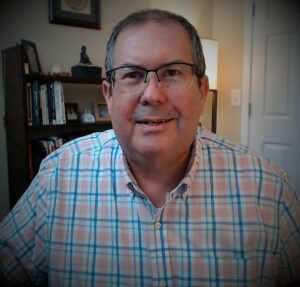
L. Gordon Brewer Jr., LMFT |Podcast Host – Gordon has spent his career in helping professions as a licensed therapist, counselor, trainer, and clergy person. He has worked with 100’s of people in teaching them the how to better manage their emotions through self-care and the practices of kindness and compassion. Follow us on Instagram and Facebook . And be sure to subscribe to our newsletter.



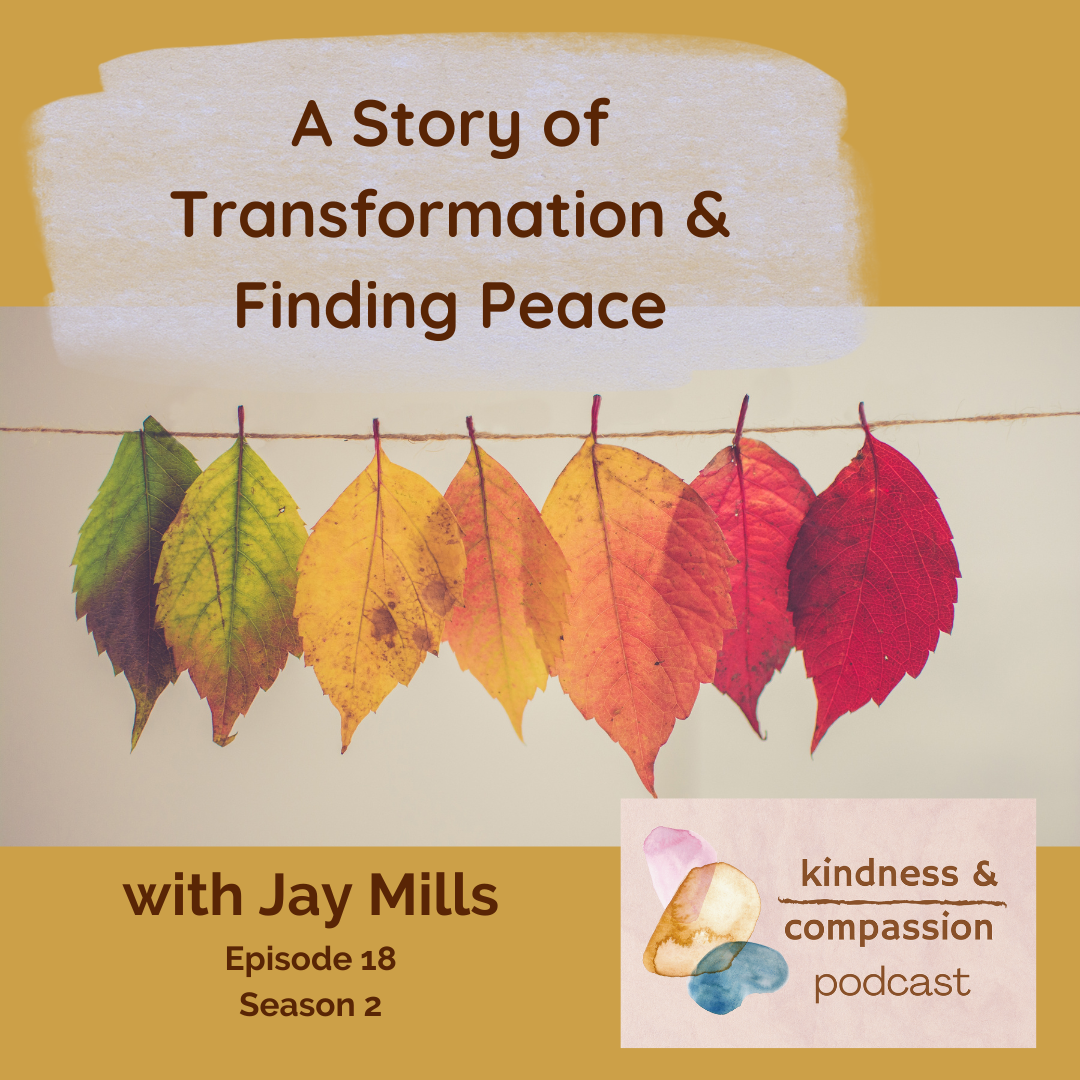
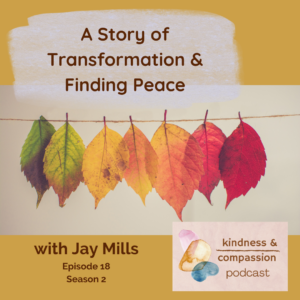
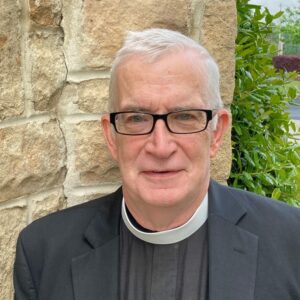 The Rev. Jay Mills was raised in a middle-class home with parents that were reasonably good parents. And I ended up getting sexually assaulted when I was 12 years old, and my life very quickly unraveled. Jay started doing drugs and alcohol heavily. He ended up being addicted very young. He was also a really angry kid with a lot of violence. He lived that way until he was about 21, where he went through a conversion through the ministries of Campus Crusade for Christ. While he does not agree with their theology now, he says “I owe them my life cause as I’ve often said, if I waited for the Episcopal Church to evangelize me, I’ve died in a drug house.
The Rev. Jay Mills was raised in a middle-class home with parents that were reasonably good parents. And I ended up getting sexually assaulted when I was 12 years old, and my life very quickly unraveled. Jay started doing drugs and alcohol heavily. He ended up being addicted very young. He was also a really angry kid with a lot of violence. He lived that way until he was about 21, where he went through a conversion through the ministries of Campus Crusade for Christ. While he does not agree with their theology now, he says “I owe them my life cause as I’ve often said, if I waited for the Episcopal Church to evangelize me, I’ve died in a drug house.
 Wendy is a former golf professional. She played as a touring professional and a teaching tour, touring pro. She is now a high performance mindset coach. She is the owner and founder of
Wendy is a former golf professional. She played as a touring professional and a teaching tour, touring pro. She is now a high performance mindset coach. She is the owner and founder of 
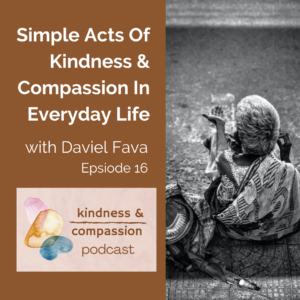 Where am I being kind and compassionate in my everyday life? Daniel Fava, a web-designer and online marketing strategist, is confronted by this very relatable question as he joins Gordon for the next conversation on the podcast. In this episode, Daniel explores with Gordon what he learned about kindness and compassion 13 years ago on a trip to India and how he is still applying it today. Listen in for an encouraging reminder that a small act, when done with love, can be the most powerful act of all.
Where am I being kind and compassionate in my everyday life? Daniel Fava, a web-designer and online marketing strategist, is confronted by this very relatable question as he joins Gordon for the next conversation on the podcast. In this episode, Daniel explores with Gordon what he learned about kindness and compassion 13 years ago on a trip to India and how he is still applying it today. Listen in for an encouraging reminder that a small act, when done with love, can be the most powerful act of all.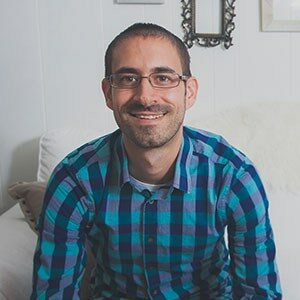 Daniel Fava was born and raised on Long Island, NY and is currently one of just five hockey fans in Atlanta where he currently lives with his wife. After using his skills as a web designer to help his wife launch a private therapy practice in 2011, Daniel decided he want to share those same skills with others. Thus, in 2016 he began a blog called Create My Therapist Website to help therapists learn how to use effective website design and online marketing strategies to launch and grow their private practice. Later he started a podcast to emphasize the importance of going beyond websites and employing online marketing and other strategies for private practice growth.
Daniel Fava was born and raised on Long Island, NY and is currently one of just five hockey fans in Atlanta where he currently lives with his wife. After using his skills as a web designer to help his wife launch a private therapy practice in 2011, Daniel decided he want to share those same skills with others. Thus, in 2016 he began a blog called Create My Therapist Website to help therapists learn how to use effective website design and online marketing strategies to launch and grow their private practice. Later he started a podcast to emphasize the importance of going beyond websites and employing online marketing and other strategies for private practice growth.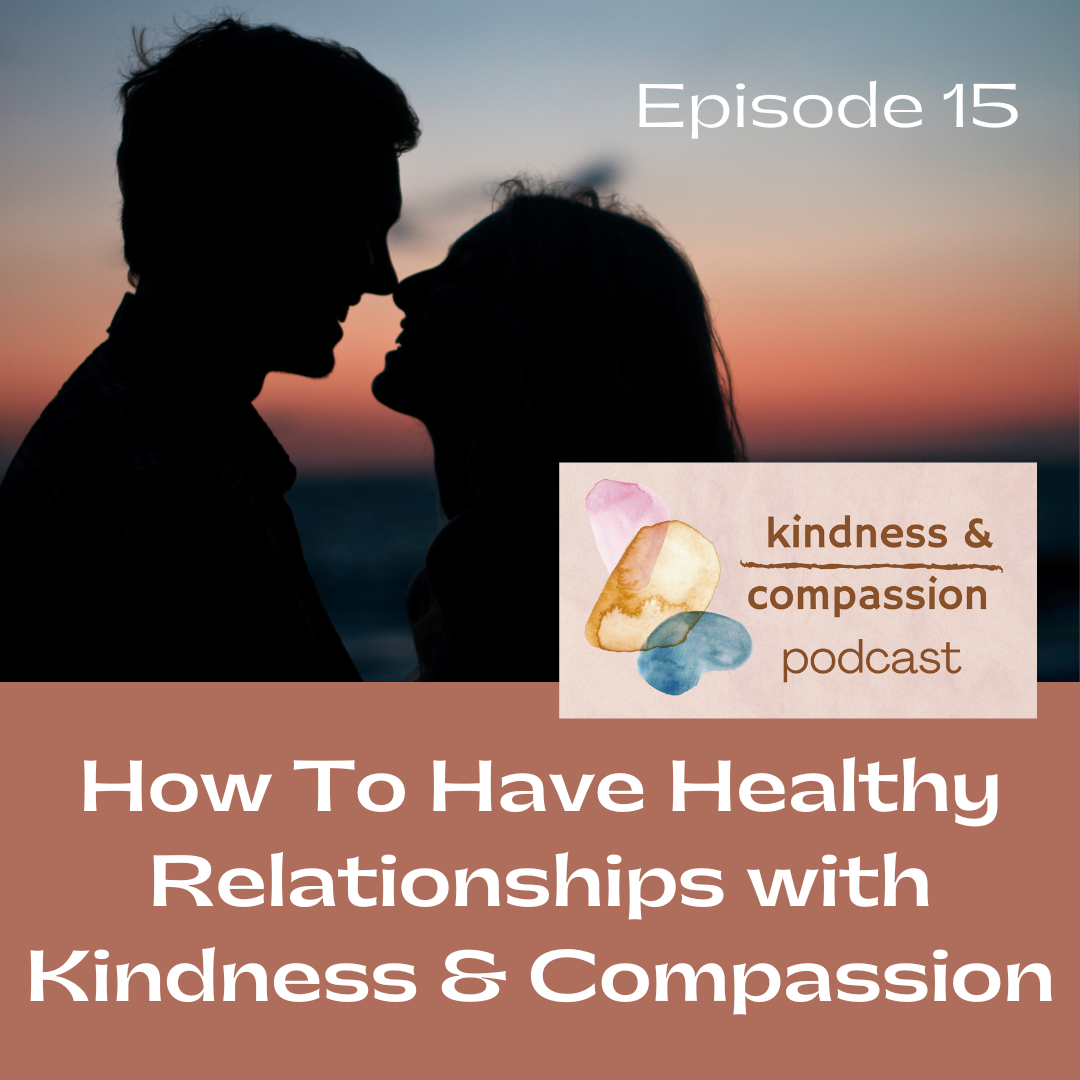
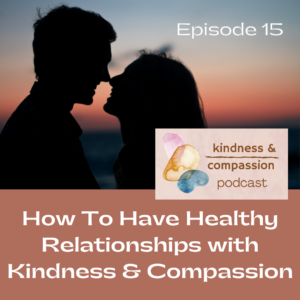 Sometimes the people we are in close relationships with are the hardest to show kindness and compassion to. In this episode Gordon shares some of the research and science behind relationships. It turns out that the key to healthy relationships is tied to recognizing interaction patterns, self-regulation, and curiosity. We can learn how to heal broken relationships and be more kind and compassionate in our key relationships. Listen in as Gordon draws from research and his years of experience in working with hundreds of couples as licensed marriage and family therapist.
Sometimes the people we are in close relationships with are the hardest to show kindness and compassion to. In this episode Gordon shares some of the research and science behind relationships. It turns out that the key to healthy relationships is tied to recognizing interaction patterns, self-regulation, and curiosity. We can learn how to heal broken relationships and be more kind and compassionate in our key relationships. Listen in as Gordon draws from research and his years of experience in working with hundreds of couples as licensed marriage and family therapist.